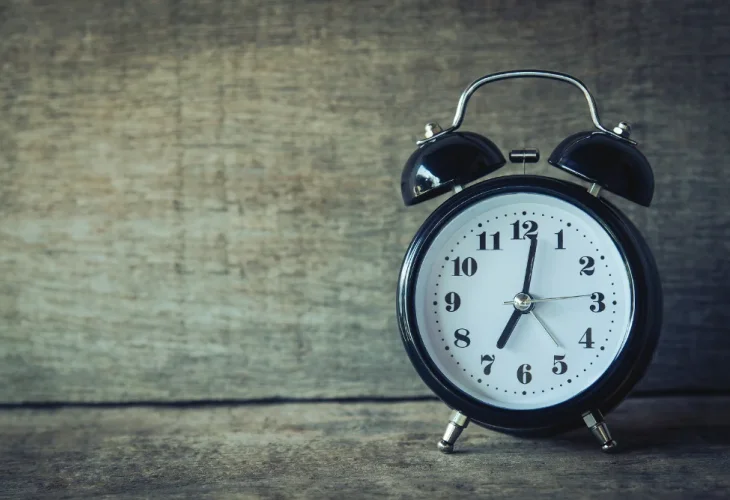Are You Setting Multiple Alarms? Stop Now!
Sleep experts warn that too many alarms can leave you waking up irritable and exhausted. "Over time, this might lead to stress, depression, and cardiovascular problems."

You've set an alarm on your phone to wake up on time, but you weren't confident you'd get up right away, so you set an additional alarm, and then another... Does this sound familiar? Experts say that too many alarms won't help and will only make you wake up feeling more irritable and exhausted.
A TikTok user, Jordan Bruce, recently explained why people should avoid setting multiple alarms on their phones. "If you're setting multiple alarms on your alarm clock, I have bad news," she said in a video that has now garnered over 10 million views.
Jordan, a nurse and healthy lifestyle expert, noted alongside the video that "maintaining good sleep is a major part of my physical and mental health." She explained that "The last and fourth stage of the sleep cycle, known as REM sleep, often occurs in the final hours of sleep. This stage is crucial for memory processing and aiding our creative processes. Interruptions during this stage can affect our brain functions."
"Waking up to multiple alarms every morning disrupts the rapid eye movement (REM) cycle and often leads to increased drowsiness, fatigue, mood changes, and elevated cortisol levels in the body," the nurse revealed in the video.
She explained that every time the alarm rings, the body enters a 'fight or flight' response, which can be stressful. According to the Joint Chiropractic website, "Over time, a chronic morning 'fight or flight' adrenaline response may cause stress, depression, and cardiovascular issues."
Jordan suggested to her followers to set just one alarm in the morning. "Stop doing this to yourself. When the alarm goes off, just get up!" she advised.
Dr. Alicia Roth, a clinician at the Ohio Sleep Disorders Center, told CNN that if a person needs to wake up at 7 a.m. but their alarms start at 6 a.m., they are getting an hour of poor-quality sleep. While one alarm is ideal, she noted that this can be challenging. Dr. Roth recommended trying different alarm clocks, like one using light or one that requires you to get out of bed to turn it off.
Dr. Cathy Goldstein, a sleep physician at Michigan sleep disorder centers, added that it's also necessary to wake up and go to sleep at around the same times each day. She mentioned it's difficult "if you sleep well from 3 a.m. to noon on weekends but need to wake up by 6 a.m. on Monday to commute. It's earlier than your body is used to, making it very hard to get up."

